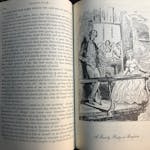In 2009, a little over a decade after she left North Korea at age 18, the opportunity arose for Hyeonseo Lee to get her mother and brother out, taking them on a long, extremely risky route through China to Laos or Thailand, where South Korean government officials would take them as refugees as they did her a few years earlier.
Lee left them at China's border with Laos in the hands of people hired to get them through to Thailand, but she soon got a call that the group had been arrested shortly after entering Laos. She borrowed money from her South Korean boyfriend, got a visa and entered Laos to try to free them.
With Laotian police and prison officials demanding increasingly staggering amounts of money, Lee needed a miracle.
What happened next turns out to be a major turning point in Lee's new book, "The Girl With Seven Names," and in her life.
Four years ago, as a reporter in Seoul, I attended a news conference where Lee became one of the first three defectors to be honored in a scholarship program the British government launched to help them study English. At the time, her story sounded like that of so many other defectors: a fairly awful life in the North and a dramatic escape through China.
It turns out speeches aren't the best way to understand the true depth of the difficulties Lee faced. Her life in North Korea, with her teen years at the height of that country's mid-1990s famine, was bad.
But her book shows that the years between her escape from the North and her arrival in the South were far more perilous. China, Vietnam, Laos and Thailand (though to a lesser degree) pursue and persecute North Koreans with a ferocity that seems unconscionable to Americans, even compared with our pursuit of terrorists and border crossers. Lee developed survival skills, quickly picking up Chinese and exhaustively saving money for bribes she knew she would need to pay, bribes that again and again saved her.
Lee tells her story in a straightforward style (helped by a credited collaborator) with only brief interjections about her feelings at a particular moment. In the epilogue, she writes that "the smallest thing sends me back into steel-plated survival mode" and that she endures "bouts of self-loathing."
"No sooner do I achieve something than I become unhappy with myself for not doing better, and achieving the next thing," she writes. Even on a South Korean TV program with other defectors, she notes that she cried less than others. Her mother, meanwhile, still dreams about the relatives they left behind.
Lee's book is one of at least a half-dozen being published in English this year from North Korean defectors, a sudden boomlet after years in which the relative trickle of books about North Korea came from journalists and diplomats who spent relatively little time there.
Like those writers, Lee shows the terrible treatment of its people by North Korea's authoritarian dictatorship. She also shows the price the regime pays for being awful: the loss of people like her who have enormous drive, intelligence and will. Under different circumstances, they could be making North Korea a better country rather than running for their lives from it.
Evan Ramstad, the Star Tribune's digital business editor, was Korea correspondent for the Wall Street Journal from 2006 to 2013.





